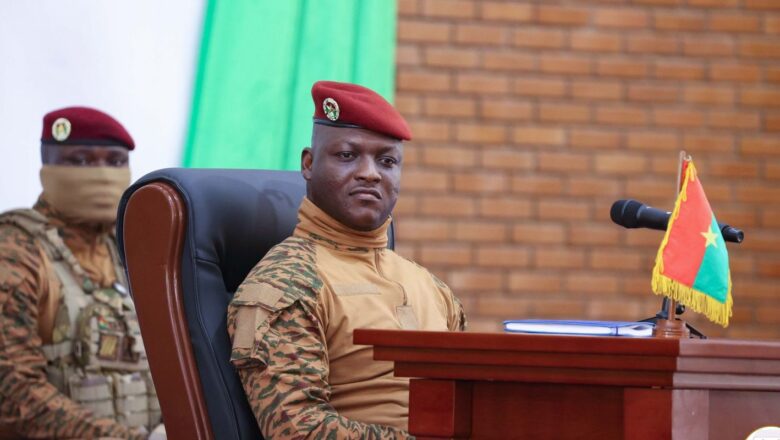Burkina Faso Faces Criticism for Putting Civilians at Risk Amid Rebel Conflict: HRW
Burkina Faso’s government is under intense scrutiny following accusations by Human Rights Watch (HRW) that it endangered civilians during its ongoing conflict with armed rebel groups. In a recent report, HRW urged the authorities to prioritize the protection of civilians, citing a deadly attack in August 2023 as an example of the government’s failure to safeguard its people. The attack, carried out by the al-Qaeda-affiliated Jama’at Nusrat al-Islam wal-Muslimin (JNIM), killed at least 133 civilians, marking one of the most devastating incidents in Burkina Faso’s recent history.
—
A Deadly Attack in Barsalogho
The incident took place in the Barsalogho commune, located approximately 80 kilometers (50 miles) from the capital, Ouagadougou. HRW’s report states that villagers were forced by security forces to assist in digging trenches intended to protect military outposts and local communities. These trenches were seen as strategic defensive measures against rebel incursions. However, the involvement of civilians backfired tragically. JNIM fighters launched an attack, accusing the villagers of being complicit with the government, and opened fire on them.
Eyewitnesses confirmed that the military compelled civilians, including children, to participate in the trench digging under the threat of violence. Some villagers initially refused, fearing retaliatory attacks by rebels, but security forces reportedly used beatings and intimidation to force compliance. HRW described the attack, which left dozens of children among the dead and at least 200 injured, as a clear war crime.
—
Government Denies Accusations
The Burkinabe government has rejected HRW’s allegations. Justice Minister Edasso Rodrigue Bayala dismissed claims of forced labor, stating that such practices are illegal under Burkinabe law and that the accusations against the military “are not proven.” Bayala emphasized the government’s commitment to civilian protection but did not provide further details regarding the Barsalogho incident.
Despite the denial, HRW’s findings have fueled concerns about how Burkina Faso’s military operations are being conducted. “The massacre in Barsalogho is the latest example of atrocities by Islamist armed groups against civilians whom the government has put at unnecessary risk,” said Carine Kaneza Nantulya, HRW’s deputy Africa director. She urged the government to take immediate steps to safeguard civilians from both rebel violence and harmful military practices.
—
Escalating Violence and Humanitarian Crisis
Burkina Faso has been grappling with a surge in violence from armed groups linked to al-Qaeda and the Islamic State (ISIL/ISIS). These groups have killed thousands of people and displaced more than two million, leading to widespread instability across the country. With nearly half of Burkina Faso now beyond government control, civilians are increasingly caught in the crossfire. The security situation has also contributed to two military coups in 2022, as successive governments struggled to curb the violence.
The new military leadership has sought to strengthen security partnerships with Russia and neighboring West African countries, hoping to regain lost territories and restore stability. However, the conflict shows no signs of abating. HRW and other human rights organizations have expressed concerns about the government’s reliance on armed civilian groups, known as Volunteers for the Defense of the Homeland (VDH). These groups, meant to bolster national security, have reportedly endangered civilians by exposing them to retaliatory attacks from rebels.
—
The Role of the Volunteers for the Defense of the Homeland
The VDH program, introduced to address the military’s manpower shortages, recruits civilians to assist in defense operations. However, HRW warns that the program has further blurred the lines between civilians and combatants, making non-combatants more vulnerable to attacks. Ilaria Allegrozzi, senior Sahel researcher at HRW, explained, “By involving civilians in defense activities, the government is inadvertently putting their lives at greater risk.”
Many civilians who participate in the VDH program or are forced into tasks like trench digging have found themselves targeted by armed groups, who view them as collaborators with the state. These dynamics have exacerbated the humanitarian crisis, making it increasingly difficult for international organizations to deliver aid to affected regions.
—
A Call for Accountability and Protection
HRW’s report underscores the urgent need for accountability and better protection of civilians in Burkina Faso. It calls on the government to end practices that put civilians in harm’s way and to ensure that all military operations comply with international humanitarian law. The NGO also highlighted the importance of independent investigations into incidents like the Barsalogho massacre, urging the international community to monitor the situation closely.
Without a comprehensive strategy to address the root causes of the conflict and improve governance, the cycle of violence in Burkina Faso is likely to continue. As the military government navigates partnerships with external powers and tries to consolidate control, the protection of civilians must remain a top priority.
A Nation at a Crossroads
Burkina Faso stands at a critical juncture as it struggles to combat armed groups while maintaining public trust. The August attack in Barsalogho exemplifies the devastating consequences of civilian involvement in conflict zones. While the government seeks new security solutions, including partnerships with Russia and regional allies, it must also address growing concerns about human rights violations.
Ensuring the safety of civilians will require more than just military intervention. It demands accountability, improved governance, and a focus on humanitarian principles. As the conflict continues to escalate, Burkina Faso’s path forward will depend on its ability to balance security needs with the protection of the very people it aims to defend.
Source : Swifteradio.com


